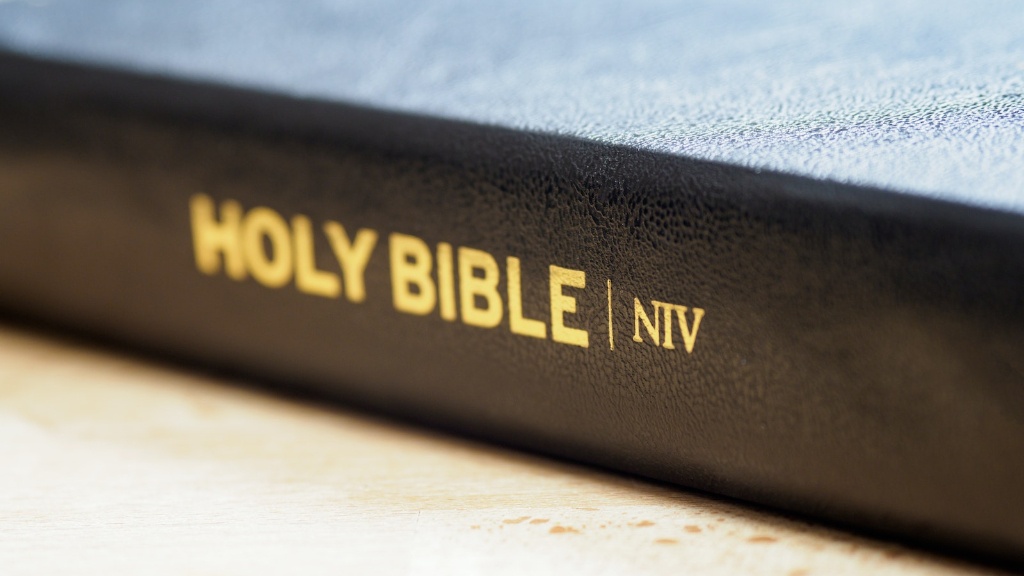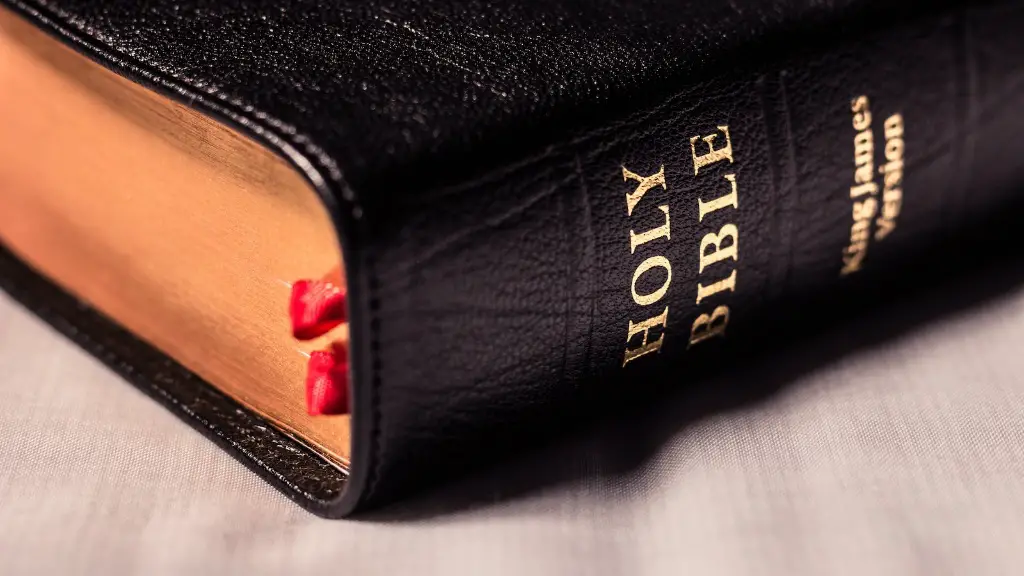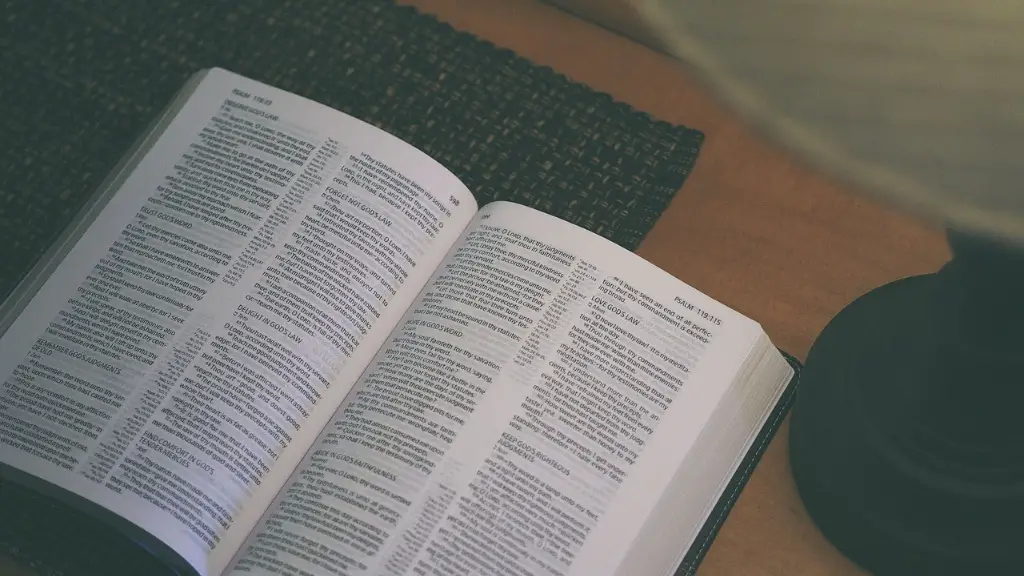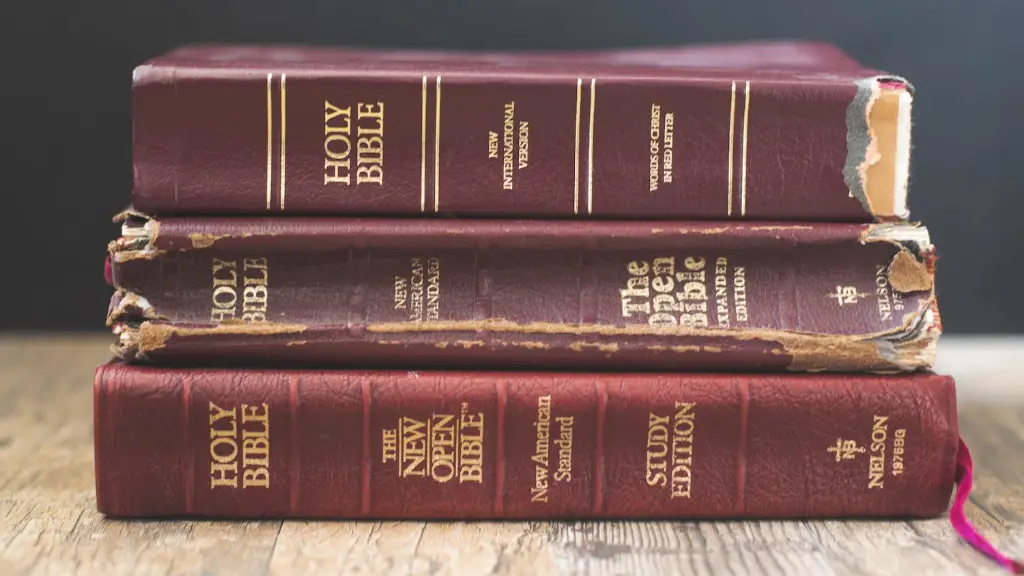Divination is defined as a practice that seeks to uncover insights into the past, present, and future. While the methods of divination may vary, this practice has found its way into many religions, including the Christian religion. The Bible specifically mentions divination several times, and the attitude its authors had towards this practice was generally detrimental. It was viewed as deception, an attempt to gain knowledge from other sources beyond divine will. This article will explore divination from the perspective of the Bible and its teachings.
In the Bible, divination is talked about in Leviticus 19:26-31 and Deuteronomy 18:10-11. The language used is often negative, describing it ‘detestable’ or ‘abhorrent’. In Deuteronomy 18:10-11 specifically, it is clear that the authors of the Bible believed divination to be a form of paganism that is to be rejected. The passage warns ‘that no one be found among you who…practices divination’. This negative attitude towards divination was also echoed in numerous other passages, lending it a strong stigma in the Christian faith.
Despite this, the notion of fortune-telling did not come out of nowhere. In ancient times, many cultures had the tradition of consulting oracles or seeking advice from those who claimed to have supernatural connections. This practice was seen as a way of gaining personal insight and guidance, furthering its appeal. It wasn’t until the rise of Christianity that this practice was heavily discredited, as the Bible speaks against divination in both the Old and New Testaments. The Bible’s teachings emphasize the importance of individual choice and responsibility as opposed to blindly following external influences.
Throughout history, there have been many theories as to why the Bible was so strong in its rejection of divination. Some people believe that it is a matter of deception and the seeking of knowledge beyond divine will. Others see it as an attempt to distance people from paganism and idolatry. Ultimately, it is up to each individual to decide what the Bible’s stance on divination means to them. What is certain is that many Christians still take the Bible’s word to heart, viewing divination as something to be avoided.
In the modern age, many people still consult fortune tellers or fortune-tellers, and some even claim to be able to read Tarot cards. While these practices are seen as more taboo in the Christian faith, they are still commonplace in many other religions and cultures. It is important to remember that the Bible’s teachings on divination were given in a much different context than today’s. Divination should be approached with caution, as there is no evidence of its accuracy or validity.
Divining Practices
There are many different divining practices in existence today. They range from the traditional such as palm reading or crystal ball gazing, to the more modern such as astrology, Tarot cards and even numerology. Some cultures even have their own, more esoteric forms of divination, such as the I Ching in Taoist tradition. While the methods and accuracy of the various divining practices may vary greatly, their aim is still the same – to gain personal insights and guidance.
Though the accuracy of divining practices remains disputed, many people still choose to consult them as a way of accessing spiritual wisdom. For Christians, this could include asking divination-related questions such as “What would God have me do?” or “What is God’s will for my life?”. However, it is important to note that the Bible does not condone or condemn any particular form of divining practice. Instead, it emphasizes the importance of making personal moral and ethical choices, rather than relying on external forces to determine them.
Divination can also be viewed as an opportunity to explore and be creative. For example, rather than using divination techniques to predict the future, some people choose to use the cards or symbols as inspiration for their own decisions and actions. The meanings associated with the symbols and cards can be seen as a way of unlocking potential and new possibilities.
Controversies and Beliefs
Though divination practices may be seen as controversial to some, particularly in the Christian faith, it must be remembered that it was once commonplace in many cultures. In ancient Greece, for instance, the oracles of Delphi were consulted to gain insight into various matters. The Christian faith has since seen divination as a practice of deception, however it is important to note the opinions of other religions and cultures. In some traditions, it is seen as an entirely different concept – a form of spiritual guidance and inner exploration.
Many people have different opinions on divination, and it can therefore be a complex and divisive topic. However, it is important to be open minded and to remember that the practice of divination can be seen as either good or bad depending on the perspective and context. As with most things in life, it is up to each individual to decide their own views and opinions, and to act according to their own moral and ethical values.
Divination In The Modern Age
In the modern age, digital technology has allowed for more access to divination tools and techniques. Websites, apps, and online forums offer a wide range of divination-related advice and services. Moreover, the internet has allowed divining practices to become more accessible and mainstream. Despite this, there is still much controversy surrounding divination in the Christian faith, and it is up to each individual to decide for themselves how to approach this practice.
The rise of digital technology has opened up a range of avenues for people to access spiritual guidance and self-reflection. Though the accuracy and effectiveness of divination remains contested, its popularity continues to grow. People of many different spiritual paths and beliefs now consult divination as a way of gaining personal insight and understanding.
To sum up, divination is still a complex and often divisive topic in the Christian faith. The Bible is clear in its warnings against divining practices, and its authors viewed the practice as a form of deception. Nonetheless, many people still consult divining practices in an attempt to gain spiritual understanding and personal insight. Ultimately, it is up to each individual to form their own opinion and approach the practice of divination with caution and open-mindedness.
Thoughts From Experts
Experts from across the world have their own thoughts on divination and its role in the Christian faith. Dr. Robert Moses, a renowned theologian, believes that divination has a place in religion, though it should be approached “with caution and discernment.” He emphasis on the importance of personal choice and responsibility. Divination, he says, should not be blindly trusted, as its accuracy and effectiveness can vary greatly.
Similarly, Dr. Sarah Smith, a professor of religious studies, suggests that divination is a personal choice. She advocates for open dialogue and thought-provoking discussion on the matter, stating “We should all be respectful to the Christian faith and the beliefs of its adherents. But this does not mean that we cannot thoughtfully discuss the place of divination in our lives and spiritual journeys.” Her stance is particularly relevant in the modern age, as the rise of digital technology has allowed for more access to divining practices and services.
Ultimately, it is up to individuals to decide their own views on divining practices. Whether one believes it is a form of deception or a way of gaining spiritual understanding, the Bible’s warnings against the practice cannot be ignored. Divination should be approached with caution and an open mind, and experts agree that it is ultimately down to the individual to decide how to approach divination.
Personal Reflections
Divination has a complex and varied history, and its place in the Christian faith remains contested. While the Bible is clear in its warnings against the practice of divining, its authors’ views should not be seen as the only ones. Other cultures, religions, or spiritual paths may have their own takes on the matter. It is important that each individual forms their own opinion, guided by their own values and moral code.
As an individual, I believe divination can be used as a tool for exploration and self-reflection. When used mindfully and consciously, divination can be an excellent way of gaining insight and spiritual understanding. At the same time, I believe it is important to approach divination with caution and to be open to the opinions of other faiths and cultures. Divination can be a useful tool to turn to when in need of spiritual guidance, though one should not rely on it blindly.
Conclusion
Divination is a complex and often divisive topic. The Bible, in both the Old and New Testaments, warns against this practice, viewing it as ‘abhorrent’ and ‘detestable’. This has led to a strong stigma against divining practices in the Christian faith, though there are still those who choose to consult them as a way of gaining personal insight. Whether one believes divination to be a form of deception or a way of accessing spiritual guidance, it is ultimately up to each individual to decide how to approach the practice.




